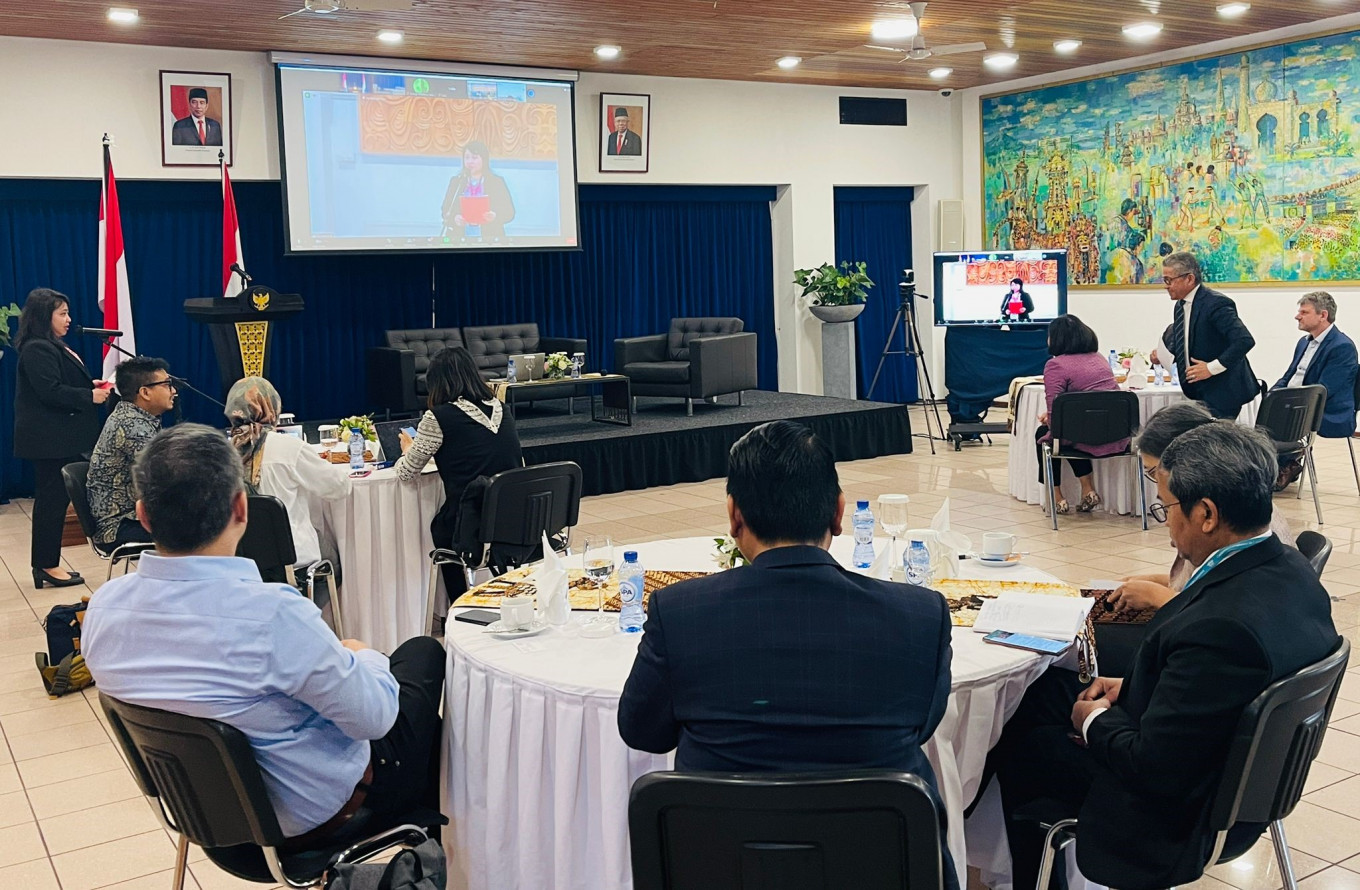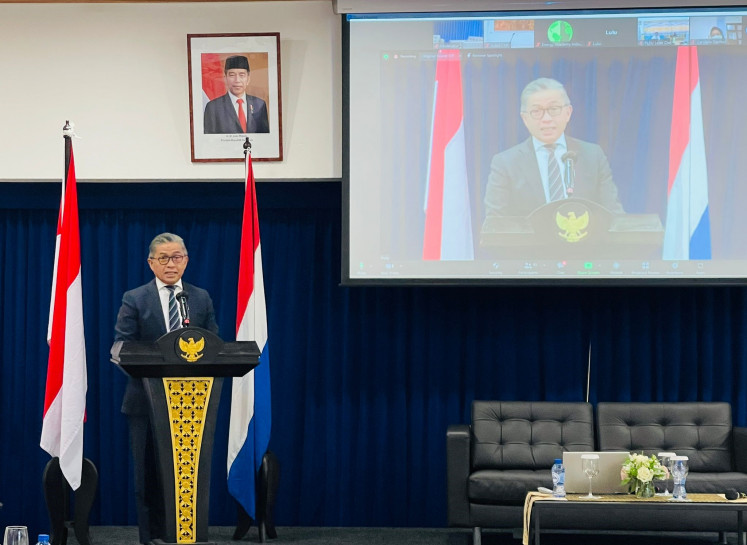Popular Reads
Top Results
Can't find what you're looking for?
View all search resultsPopular Reads
Top Results
Can't find what you're looking for?
View all search resultsPLN sought teachings from Europe to develop carbon trading back home
PT PLN (Persero), along with its subsidiaries PT Indonesia Power and PT Pembangkit Jawa (PJB), has continued to maximize the three power companies’ role in carbon trading in an effort to reduce emissions.
Change text size
Gift Premium Articles
to Anyone
P
T PLN (Persero), along with its subsidiaries PT Indonesia Power and PT Pembangkit Jawa (PJB), has continued to maximize the three power companies’ role in carbon trading in an effort to reduce emissions, through a capacity building program in the Netherlands, Germany, and Belgium.
“Building capacity will help us accelerate and make carbon trading more effective,” said Yusuf Didi Setiarto, the PLN Human Resource Management Director. He noted that increasing human resource capacity was also important, considering that PLN and its subsidiaries had an important role in reducing emissions and carbon trading in Indonesia.
Called “Implementing Emission Trading System: Lessons from Europe”, the capacity building program is a collaboration between PLN and Energy Academy Indonesia (ECADIN), the latter as a “knowledge partner”. The program was held at the Indonesian Embassy in the Hague, the Netherlands.
Mayerfas, the Ambassador Extraordinary and Plenipotentiary of the Republic of Indonesia to the Kingdom of the Netherlands, voiced his support for PLN in developing carbon trading in Indonesia. PLN’s cooperation with the Netherlands had not only improved bilateral relations between the two countries, but also increased their capabilities.
"I believe that our presence reflects a shared commitment to collaborate and learn from each other to mitigate climate change as a global challenge," said the ambassador.
The director of the Dutch Emissions Authority (NEa), Mark Bressers, said the collaboration would provide PLN with learning space. Moreover, the power company could develop on the carbon trading concept that had been implemented in the Netherlands. It was hoped that PLN, through the collaboration program, could establish the economic value of carbon in support of Indonesia’s 2030 emission reduction target and 2060 net zero target.
The program was a collaboration between Indonesia, The Netherlands, Belgium and GermanyThe NEa director also referred to the Fit for 55 strategy on reducing the Netherlands’ emissions by 55 percent by 2030, in line with the commitments made by other members of the European Union.
Last year, President Joko Widodo issued Presidential Regulation (Perpres) No. 98/2021 on the Economic Value of Carbon (NEK), cementing Indonesia’s position as a pioneer in market-based climate change mitigation at the global level towards sustainable economic recovery.
PLN director Didi also revealed that the power company last year trialed the emissions trading system (ETS) at 26 steam power plants (PLTUs) in a first for Indonesia.
"This successful trial is a milestone for the Indonesian government in implementing carbon tax and carbon trading regulations in April," he said.
"We are also strengthening our internal system to measure and verify emissions trading, so we can make a real contribution to reducing emissions."
Didi explained that PLN was taking other steps toward effective and optimal carbon trading, such as formulating strategies, strengthening human resource capacity and readying corporate action plans.
He believed that PLN could become the driver in leading the power sector in carbon emissions trading in Indonesia.
"Our vision is to lead Indonesia's energy transition while maintaining long-term growth," he emphasized.











